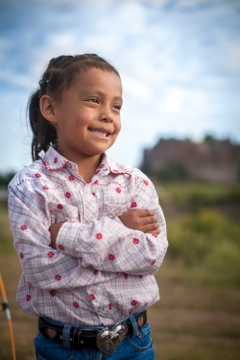Heart in Nonfiction Books
Guest Post by Nancy Bo Flood on Janet Fox’s Through the Wardrobe blog, April 18, 2013
Nancy Bo Flood, a good friend and talented fellow Vermont College of Fine Arts grad, has a new non-fiction picture book out, Cowboy Up! Ride The Navajo Rodeo, with photographs by Jan Sonnenmair. I invited her to come by and talk about non-fiction picture books, because they have become an important part of the young child’s reading experience. Here’s Nancy:

photo: Jan Sonnenmair
Informational picture books for children keep getting better with engaging stories and images. Regardless of the picture book topic, we see innovative designs, creative presentations, plus captivating images that often mix photographs and historical papers with colorful art.
The most striking new quality of current nonfiction picture books for children is that each book is a story – a story with setting, characters, plot or “through line,” and most important “heart.” What I mean by heart is that the author’s passion for the subject shines right through the words and captures the heart of the reader. When children read that last page, they not only know new information, but perhaps even more important, the reader cares. Wow! I want to read more. Where’s another book?
For example, Leda Schubert’s picture book biography of Marcel Marceau won this year’s Orbis Pictus Prize – the best in nonfiction children’s literature. Monsieur Marceau: Actor Without Words tells a true story with a blazing heart.
Look over the entire list of winning books recognized with the Orbis Pictus prize this year. The list is found at the National Council of Teachers of English’s (NCTE) site. The entire list is invaluable as a variety of examples of books that tell a story, engage readers, and provide a depth of information.
My own recent nonfiction picture book, Cowboy Up! Ride The Navajo Rodeo, is a nonfiction “hybrid” of poetry, narrative and photographs. What I worked to create was a book that showed the heart of Navajo rodeo – the determination of the young riders as they try to stay on a bucking sheep , race around barrels on a galloping horse, or ride without saddle on a bucking bronco. I wanted to show that these wranglers are kids like any kid, they strut the midway, slurp a refreshing shaved ice, fight back tears when they don’t make a winning ride. To show the real heart of this sport, I wanted the reader to experience the riders’ fears, failures and successes, and also the excitement of the crowd, the involvement of every family member from the grandmas and grandpas to the cousins and baby sisters.
In summary, we see that the key qualities of good nonfiction books remain true. Research is thorough and in-depth, and whenever possible, includes primary sources. Information presented is accurate, often presenting “both sides” of controversial topics so readers can analyze and make up their own young minds.
But the newest components – story and heart – are now part of a good factual book regardless of the book’s topic. Nonfiction books, including picture books, are written with all the same skill and craft as any book – and with passion, heart and story.